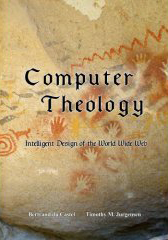PRESS
COMPUTER THEOLOGY |
||||
Esteem Needs
Esteem is about reputation. It is a
foundational concept in the establishment of trust through experiential
identity. Within small, stable groups we ascribe reputation to others based on
our observations of their interactions. In so doing, we compile an experiential
identity archive for others within our mind. In some instances, we augment our
personal observations with the reputation imputed to others. In particular, if
we don’t have direct observations, we may adopt reputations for others as
attested to by trusted third parties. Thus we arrive at an internal assessment
of reputation as well as an external assessment. With respect to the much
broader, technical manifestation of social orders that we are now considering,
we approach the determination of reputation in much the same way. With respect
to the transcendent personal device itself, we must consider an internal
component and an external component. The internal component is based on
causality and process; causality of the device, beginning with its design and
manufacture, and process through which the device is provisioned and operated.
The external component is based on experiential identity; of the device, of the
device’s bearer as presented through the conduct and results of interactions,
and of other entities as attested to by trusted third parties. Previously, in
considering the need of or for esteem, we have observed that it is related to
the human mind’s development of the facility of empathy; that within any given
environment, we assess the situations of others based on an assessment of our
own position within that environment. This internal yardstick of reputation,
that we call self-esteem, forms a basis for assessing the reputation of other
entities, either directly manifested or mediated by trusted third parties; for
example, if we have low self-esteem, we may overestimate others, and conversely,
high self-esteem may lead us to ignore possible help. So, how do these
characteristics of esteem translate into required facilities of the
transcendent personal device? The first order requirement is that the
transcendent personal device be accurately confident of itself. It must have an
established level of trust that it is functioning correctly, not within some
altered state of consciousness. A corollary to this level of trust is the need
to be able to enter such an altered state of consciousness in a trustworthy
manner. This manner will most typically be through an appropriate ritual as
defined, for the device, by trusted protocols through which the trust
infrastructure can be altered. To establish these levels of trust, the
transcendent personal device must be assured of its own physical security and
be confident in the security of the processes that it effects. It must,
therefore, have ongoing trust in the physical integrity of both the body and
trusted core agent, it must have trust in the software that is running on both
and it must have trust in the relationship and interactions with its bearer. A growing threat of personal electronic
devices is their subversion during the design and manufacturing phase. The risk
is that computer viruses or other forms of malevolent software be installed on
the devices prior to their final provisioning and personalization on behalf of
their bearers. Then, once placed into operation, they serve to intercept
information and to surreptitiously provide it through network connections to
attackers. This threat potential reinforces the need to establish the basis of
trust in the causality of the device’s design and manufacture. Fully
provisioning the need for esteem requires the chain of trust to be congruent
with the device itself. For large scale purchases of any product, the consumer can make use of special protocols through which to establish trust. We’ve noted that within the current environment of secure core acquisitions, it is not uncommon for an issuer (a large-scale consumer of secure cores) to perform detailed audits of the secure core manufacturing facilities. This entails tracing the chain of trust all the way back to the seminal design activities of both the body and secure core agent. From this |
||||
|
||||
© Midori Press, LLC, 2008. All rights reserved for all countries. (Inquiries) The contents of ComputerTheology: Intelligent Design of the World Wide Web are presented for the sole purpose of on-line reading to allow the reader to determine whether to purchase the book. Reproduction and other derivative works are expressly forbidden without the written consent of Midori Press. Legal deposit with the US Library of Congress 1-33735636, 2007.
|
ComputerTheology Intelligent Design of the World Wide Web Bertrand du Castel and Timothy M. Jurgensen Midori Press, Austin Texas 1st Edition 2008 (468 pp) ISBN 0-9801821-1-5 |
Book available at Midori Press (regular) |
